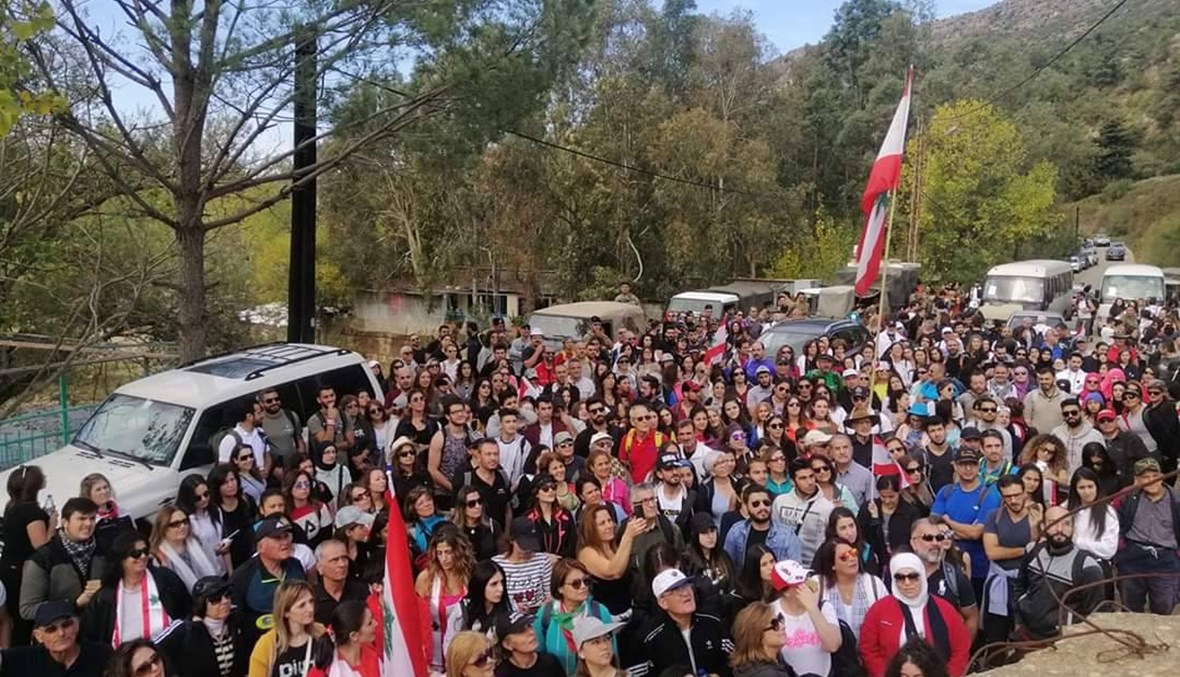Bisri Dam: An ongoing controversy
BEIRUT: Controversy over the Bisri Dam project is ongoing and has amplified with the rise of the Lebanese October Revolution.
The Bisri Dam project was introduced in the 1950s but was put in action in 2015 after the funding was approved by the World Bank. According to a study published by the Council of Development and Reconstruction, the Lebanese Government through the Council of Development and Reconstruction has proposed this project because they believe it will be able to supply water for Greater Beirut and Mount Lebanon by conveying water from the Al-Awali and Qaroun Rivers.
However, many environmentalists and activists believe that the project will result in several ecological dangers. To restrict the further implementation of the project, the National campaign to protect Bisri valley was initiated and several environmentalists, activists, and anti-dam protesters have been voicing their opinion and protesting constantly for years now. They have described the case as an “environmental ticking time-bomb” that will go off if no proper actions were taken.
The Save Bisri Campaign has been aiming to raise awareness of the dangers of this project. According to activists, this dam threatens biodiversity and destroys the shelter of several animals. The dam also contributes to climate change due to the cutting of hundreds of thousands of trees. Besides all of that, the project violates Resolution No. 131/1 which classifies the Al-Awali river as a natural reserve and Article 4 of the Environmental Protection Law No. 444 and the Paris Convention on Climate Change and the 2030 Sustainable Development Goals. But most importantly, the project is doomed to failure and it will only increase the government’s debt. The campaign even proposed many alternative ways to provide Beirut with water. They believe the real problem isn’t that there is a scarcity of water, but there is mismanagement of the water sector.
According to Roland Nassour, the Coordinator of the Save BisriCampaign, this project only serves the interests of the politicians who are dividing the profits among each other.
“This project and similar large dam project are always doomed to failure,” Nassour told Annahar. “The study which was published by the Council of Development and Reconstruction is outdated and has missing information. Hence, they are now working illegally.”
On the bright side, the Lebanese revolution served as the light at the end of the tunnel. During the revolution, anti-dam protesters have called for more action. Thousands of protesters came hand in hand to protect the valley because they believe that protesting this project not only serves the environment, but it also serves the revolution.
Protesters have organized and are still organizing activities in the Bisri Valley which include camping in the valley, discussions on the importance of protecting this valley, and planting trees initiatives. They also removed security cameras and tore down barriers including a chain-link fence in the Bisri Valley during one of the protests in November. Shortly after, nine protesters were asked for investigation.
“I was asked for investigation because we were accused of removing the security cameras and opening the road to the valley. However, what we were really doing is freeing thisvalley, our valley, from environmental crimes,” Amani Beaini, an activist and one of the protesters who was chosen selectively for investigation, told Annahar. “The government shouldn’t punish us. It should punish everyone who is part of this project because they are the ones who are above the law and who are implementing this project illegally.”
After the protesters had put a lot of pressure on the government and due to the unstable situation of the country, the Council decided to remove its equipment including bulldozers and excavators from the valley. This act was a win for both the anti-dam protesters and the revolution.
Although the project is currently not in action and has stopped temporarily , the case isn’t closed, and the struggle is still ongoing. The campaign is working even harder and more seriously on the issue in hopes of saving the valley and bringing another win to the revolution.
“The case still has a long way to go, but we will continue with the protests until the project is officially canceled and the valley is declared as a national reserve,” Nassour said.
---------------
To know more about the activities of the Save Bisri campaign, you can follow them online through their Facebook page: Save the Bisri Valley.


 اشترِك في نشرتنا الإخبارية
اشترِك في نشرتنا الإخبارية










